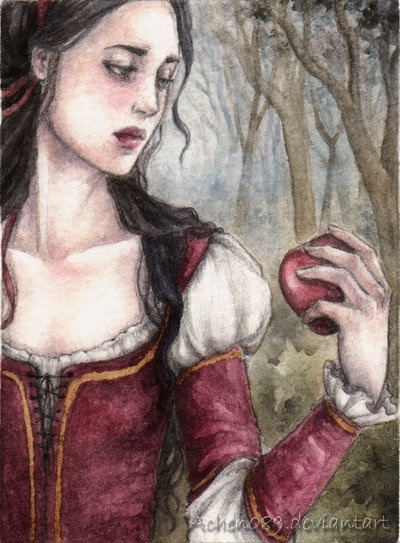Who is the fairest of them all?
In my last post I wrote about my impressions of the movie Snow White and the Huntsman and its themes regarding the poisonous symptoms and effects of envy in our relationships. Envy affects every human on the planet regardless of ethnicity, wealth, social status, or culture. I titled this post, “The Snow White Syndrome” after Betsy Cohen’s book of the same name. In this post I’ll discuss the anecdotes to envy’s poison. Again, I use my article entitled “Toward a More Authentic Sisterhood: Unmasking Hidden Envy and Competition among LDS Women” published in the November, 2005 issue of Sunstone magazine. I write from the perspective of an American woman and my research sources are from North America. My article specifically focuses on Latter-day Saint culture in the United States. Here’s the direct link if you’re interested in reading it:
http://sunstonemagazine.com/wp-content/uploads/sbi/articles/139-32-40.pdf

The poisons of envy affect all of us at some point in our lives. We might be the envier or the object of another person’s envy. Perhaps we engage in both roles simultaneously. Again, I don’t intend to foster contention nor to denigrate women or men. I hope to enhance our sisterhood and community by shining a spotlight on this significant but unspoken issue. Envy hides in the dark, and that’s precisely how it gains its power. So, what to do when you are caught in envy’s web? I suggest the following:
- Admitting our envy. If we feel envy and can admit to it and examine it, we will recognize it as a signpost to other feelings, or as some sort of defense mechanism. Owning up to our envious and competitive feelings can be a wonderful key, unlocking the door to creative freedoms and new levels of accomplishment. Denying our envious feelings will only ensure that they will continue to work their poison.
- Recognizing that being different is not a negative. As I’ve said in earlier posts, difference doesn’t have to mean disconnection from each other. We can allow ourselves the option of being different. A difference of opinion doesn’t mean rejection. By the same token, I’ve learned to distinguish a difference of opinion from unfair criticism stemming from envy.
- Talking about our feelings. Why is this so hard for so many of us? This hardship is exacerbated by our reluctance to discuss and/or disclose feelings of envy, betrayal, guilt, competition, abandonment, and anger. We can learn to tell our truth and hear another’s truth ethically and constructively. These new ways of relating take effort and courage. But in applying them, we build faith in each other and learn to trust that speaking up in constructive ways won’t sever but strengthen our ties to each other.
- Refraining from provoking envy in others. One of the paradoxes of envy is this: When women or men seem too happy or too successful and don’t seem to struggle enough, our empathy or nurturing feelings for each other can very easily evolve into envy. I’m not suggesting that we go out of our way to showcase our miseries, large or small, in order to avoid being envied. Instead, I’m highlighting the real dangers of falling victim to “Perfect Latter-day Saint Woman Syndrome” and calling too much attention to our family’s successes, or to the personal standards by which we live the gospel, and so forth.
- Seeking the Lord’s approval of our life plan. Forging ahead without the approval of others takes a strong sense of self. We can develop this through cultivating a close relationship with the Lord and seeking his will instead of the will of others. As long as I feel I have divine approval, I don’t question myself.
- Maintaining our spiritual health. We can be vigilant in honestly examining and working to maintain our own spiritual health. If caught in envy’s snare, we can use our recognition of it as a motivating force to discover what our needs are and then work to fulfill those needs. Envy is a hunger, but not knowing how to constructively feed it. Jesus Christ is the antidote for envy’s poison. His love and goodness fills our empty vessels because through his love, we feel worthy and good. Thus, we learn to embrace and feel gratitude for our own unique goodness instead of focusing so intently on someone else’s.
I believe that competition, envy, and resentment are at the heart of many women’s (and men’s) struggles with each other. I also feel that we will never reach a level of sincere, pure sisterhood or community if we do not admit that we are bleeding—and stop the bleeding in order to heal our wounds. The power is with each of us to bind up and heal one another’s wounds. As I’ve mentioned in previous posts, we can honestly and consistently ask ourselves, “In which way am I using my power: Is it to hurt or to heal others? Am I ostracizing, criticizing, and gossiping about women (or men) I feel are more successful than I? Or am I inclusive and respectful of women (or men) who pursue a different path than my own? Just as important we can periodically check for personal wounds.
When we feel wounded by another’s success, we know we are bleeding. We might feel that he or she is using her success or power to wound us, and at times, perhaps she is. But, more often than not—and here’s the tough part—we will find that we, not the woman we begrudge or resent, are the cause of our own wounding.

Mary and Elizabeth
Mary, the mother of Christ and Elizabeth, the mother of John the Baptist, were cousins, and they truly exemplified authentic sisterhood. In sharing this message about their sisterhood, I refer to Patricia Holland’s (wife of Apostle Jeffrey Holland) 1984 Ensign magazine article, “The Fruits of Peace”:
I have always been touched that in her moment of greatest need, her singular time of confusion and wonder and awe, Mary went to another woman . . . It was their very womanhood that God had used for his holiest of purposes. Elizabeth is not petty or fearful or envious here. Her son will not have the fame or role or divinity that has been bestowed on Mary’s child, but her only feelings are of love and devotion. To this young, bewildered kinswoman she says only, “Blessed art thou among women, and blessed is the fruit of thy womb. And when is this to me that the mother of my Lord should come to me?”
(Luke 1: 42-43).
As Latter-day Saints (especially women), we often know how to love, nurture, care for, uplift, praise, comfort, advise, and be each other’s soft place to fall when we are feeling needy, low, and vulnerable. But like Elizabeth and Mary, let us also be a place from which we can fly, revel, glory, and delight in each other’s great news. Let us be each other’s cheering sections not just in times of need, but also in times of glorious triumph!
Here’s to healing,
Julie

